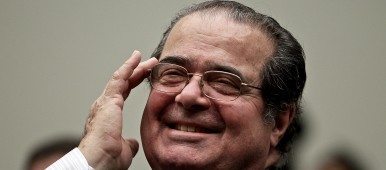
- Mediation
- Arbitration
- Court Neutrals
- Online Dispute Resolution
- Technology
- Court Decisions
- More
- Legislation
- Healthcare
- Guest Posts
- John DeGroote
- John C. Fleming
- Rick Freeman
- Professor Peter Friedman
- Honorable W. Royal Furgeson, Jr.
- James M. Gaitis
- Laura A. Kaster
- Professor John Lande
- Philip J. Loree, Jr.
- Michael McIlwrath
- F. Peter Phillips
- Professor Alan Scott Rau
- Professor Thomas J. Stipanowich
- Professor S.I. Strong
- Richard Webb
- Glen M. Wilkerson
- International arbitration
- Regulation
- Sports and Entertainment
- We’re Back!!!!Well, it’s been a while since we published and that is about to change. Since I spent much of last year becoming
 JAMS Welcomes Karl Bayer to its Panel of NeutralsJAMS, the world’s largest private alternative dispute resolution (ADR) provider, is pleased to announce that Karl Bayer
JAMS Welcomes Karl Bayer to its Panel of NeutralsJAMS, the world’s largest private alternative dispute resolution (ADR) provider, is pleased to announce that Karl Bayer Class Action Waivers in Arbitration Agreements: The Twenty-First Century Arbitration Battleground and Implications for the EU CountriesLinda S. Mullenix, Morris & Rita Atlas Chair in Advocacy at the University of Texas School of Law, has written “Class Ac
Class Action Waivers in Arbitration Agreements: The Twenty-First Century Arbitration Battleground and Implications for the EU CountriesLinda S. Mullenix, Morris & Rita Atlas Chair in Advocacy at the University of Texas School of Law, has written “Class Ac Picking the Proper Technological Tool for Problem-Solving in ArbitrationProfessor Amy J. Schmitz, John Deaver Drinko-Baker & Hostetler Chair in Law and Co-Director of the Translational Data An
Picking the Proper Technological Tool for Problem-Solving in ArbitrationProfessor Amy J. Schmitz, John Deaver Drinko-Baker & Hostetler Chair in Law and Co-Director of the Translational Data An
Recent Posts
Suspension Set to Begin for Dallas Cowboys Running Back
A New York federal judge has dissolved a temporary restraining order and ruled the National Football League Players Association (“NFLPA”) failed to establish a Dallas Cowboys running back’s controversial six-game suspension was fundamentally unfair.
Continue reading...The Bold Ambition of Justice Scalia’s Arbitration Jurisprudence
Katherine V.W. Stone, Arjay and Frances Fearing Miller Distinguished Professor of Law at the University of California, Los Angeles (UCLA) – School of Law, has published “The Bold Ambition of Justice Scalia’s Arbitration Jurisprudence: Keep Workers and Consumers Out of Court,” 21 Employee Rights and Employment Policy Journal 189 (2017); UCLA School of Law Public Law & Legal Theory Research Paper No. 17-41.
Continue reading...Senate Narrowly Votes to Rescind New CFPB Arbitration Rule
The Vice President has cast a tie-breaking vote in the United States Senate to rescind a new Consumer Financial Protection Bureau (“CFPB”) rule that prohibits most financial service providers such as banks and credit card issuers from requiring consumers to sign mandatory arbitration agreements barring class-action lawsuits.
Continue reading...Legal Battle Continues After Arbitrator Upholds Suspension of Dallas Cowboys Running Back
The legal saga over a National Football League (“NFL”) running back’s controversial six-game suspension has continued on in various federal courts.
Continue reading...Arbitration
The Supreme Court of Texas has ruled that a payday lender did not waive its right to compel arbitration against the company’s defaulting customers.
Continue reading...Mediation
The Supreme Court of Texas has held that participation in a non-binding mediation rendered a debtor a “settling person” under Chapter 33 of the Texas Civil Practice and Remedies Code for purposes of determining proportionate liability. In MCI Sales & Serv. v. Hinton, No. 09-0048, (Tex. December 17, 2010), the owner and operator of a motorcoach rental service, Central Texas, filed for Chapter 11 bankruptcy protection after an accident in which five passengers were killed and several others were injured. Central Texas maintained a $5 million liability policy, the proceeds of which were paid into a liability fund maintained by the bankruptcy court. The crash victims filed creditor claims against Central Texas in bankruptcy court and participated in a non-binding mediation intended to apportion the proceeds of the liability fund. During mediation, each claimant was assigned a percentage of the fund. These percentages were incorporated into a plan submitted to and approved by the bankruptcy court in October 2003. Under the “Apportionment Plan,” a claimant could accept the mediator’s percentage and immediately receive that portion of the liability fund. If the claimant chose not to accept the mediator’s allocation, the claimant participated in a “Litigation Plan.” Under this plan, the claimants tried their claims to a special judge agreed to by the participants, and their recovery under this plan was capped at 110% of the mediator’s allocation. Further, the parties could agree at any time to approve a full or partial distribution to any or all participants. Central Texas’s tort liability in excess of the liability fund was discharged upon approval of its reorganization plan the following year. In June 2003, the claimants filed a lawsuit against the manufacturer of the motorcoach, Motor Coach Industries Mexico, S.A., (MCI) alleging the manufacturer of the bus should have installed seatbelts and glazed the windows of the coach with a different material. After the trial court denied MCI’s motion to join Central Texas and refused to submit a question to the jury regarding proportionate liability, a jury awarded the claimants more than $17 million. Following the lawsuit against MCI, each claimant participated in the bankruptcy court Litigation Plan and appeared before a special judge. The special judge held that the bus driver’s negligence was the proximate cause of the claimants’ injuries and awarded all but one claimant 110% of the mediator’s award. The awards were prorated due to limited funds, however, and each claimant received a sum within 2% of that awarded by the mediator. The trial court next entered a judgment which adjusted the damage awards to account for funds each claimant received under the Litigation Plan. MCI appealed and an appellate court reversed and remanded the case, but rejected MCI’s preemption argument. MCI then petitioned the Supreme Court of Texas for review of its preemption argument and the claimants cross-petitioned for a “review of the proportionate responsibility issue.” MCI argued that the jury’s award was preempted by the Federal Motor Vehicle Safety Standards 205 and 208. Federal safety regulations governing at the time the motorcoach was manufactured allowed bus manufacturers to choose between several particular types of window glaze and were silent as to whether seatbelts were required. After a lengthy review of the regulations at issue, the Supreme Court of Texas held, Because we conclude that the jury’s verdict which is grounded in this state’s common law does not present any obstacle to the accomplishment of the federal regulatory scheme’s purpose, we hold that the federal safety standards at issue do not preempt state law. Next, the Supreme Court determined whether Central Texas was a “setting person” under Chapter 33 of the Texas Civil Practice and Remedies Code. At the time of the accident, “section 33.003 required a trier of fact to determine the percentage of responsibility for each claimant, each defendant, each settling person, and each responsible third party who had been properly joined.” If a defendant’s percentage of responsibility exceeded 50%, that defendant was jointly and severally responsible for all of the damages a claimant could recover. The Supreme Court held that Central Texas was a “settling person” under the statute “and the trial court should have submitted a question to the jury concerning Central Texas’s proportionate responsibility as such.” According to the Court, We also apply Chapter 33 of the Texas Civil Practice and Remedies Code to a plan adopted by a bankruptcy court to apportion a debtor’s insurance proceeds among a group of creditors who filed claims against the bankruptcy estate. The unique plan allowed the claimants to either accept a mediated percentage of the proceeds or to litigate their claims before a special judge. Even if the claimants chose the latter course, their recovery was capped at 110% of the mediator’s award, and the claimants could agree at any time to full or partial distributions to any or all of the claimants. We must decide if this plan renders the debtor—who purchased the insurance policy funding the plan and whose further liability was discharged in bankruptcy—a settling person under Chapter 33 for purposes of determining proportionate liability. We conclude that it does. Accordingly, we affirm the court of appeals’ judgment and remand to the trial court for further proceedings consistent with this opinion. The Supreme Court of Texas held that the jury’s verdict was not preempted because it was grounded in state common law and did not present any obstacle to the accomplishment of the federal regulatory scheme’s purpose. The Court further held that Central Texas was a “settling person” for purposes of determining proportionate liability under Chapter 33 of the Texas Civil Practice and Remedies Code and remanded the case. In his dissent, Chief Justice Jefferson’s stated, I would hold that the court of appeals erred in reversing the trial court’s refusal to submit Central Texas as a “settling person.” Because the Court’s holding regarding Chapter 33 neither complies with the statute (“at the time of submission”), nor properly construes the circumstances under which [claimant] pursued his claims within the bankruptcy proceedings, I respectfully […]
Continue reading...Healthcare Disputes
Industry Responses to Medical Malpractice Reform in President Obama’s Health Care Plan
by Holly Hayes President Obama’s Plan on Health Care (discussed here and outlined here) includes a provision on medical malpractice reform that instructs the Secretary of Health and Human Services to award medical malpractice demonstration grants to states funded by the Agency for Healthcare Research and Quality. Following are some responses from industry leaders: American Hospital Association (AHA) President and CEO, Rich Umbdenstock, said, “We appreciate the President’s willingness to explore better alternatives to today’s medical liability system, and urge that even stronger actions be taken in this area to reign in excessive lawsuits that are currently driving physicians to practice defensive medicine and raise the cost of care for everyone.” (find the statement here) American Medical Association (AMA) President, J. James Rohack, MD, comments, “President Obama recognized what physicians have long known – that medical liability reform is needed to bring down the cost of health care, and he is directing the Department of Health and Human Services to take action now. Recognizing the critical need for medical liability reform is an important step toward reducing unnecessary costs. Everyday physicians across the country are forced to consider the broken medical liability system when making decisions, resulting in defensive medicine that adds to unnecessary health costs. We cannot ignore this problem if health-system reform is going to address the growing cost of care.” (find the statement here) American Nursing Association (ANA) President Rebecca Patton praised President Obama at his first public appearance on health care reform since addressing Congress for advocating for people who lack access to basic health care services in the nation’s “broken system” and for fighting for consumer protections in the health insurance market. (find the statement here) Technorati Tags: Tort Reform, Healthcare President Obama, speech September 9, arbitration, ADR, law, mediation Holly Hayes is a mediator at Karl Bayer, Dispute Resolution Expert where she focuses on mediation of health care disputes. Holly holds a B.A. from Southern Methodist University and a Masters in Health Administration from Duke University. She can be reached at: holly@karlbayer.com.
Continue reading...President Obama’s Health Care Speech: Tort Reform Implications to Arbitration and Mediation
President Obama’s speech (text is here and videos: Parts I, II, III, IV, and V) to a joint session of the U.S.Congress delivered on September 9, briefly mentioned a proposal to move the medical malpractice lawsuits out of the court system and before mediators, medical expert panels, and arbitrators. Although we have not been able to find out the details of the plan –it appears that it will be announced within a month– here is what some commentators are saying about it: States Could Offer Template for Revising Malpractice Law. Some states (Michigan, Minnesota, Kentucky, and others) have adopted a system that allows doctors to disclose medical errors and then enter into mediation to resolve the dispute. Other states (Florida, Georgia, and Illinois) require plaintiffs to have their case reviewed by physicians before the case is filed in court. (read more here) Obama Bucks the Trial Lawyers: Is Med-Mal Reform Imminent? A similar proposal on medical malpractice plan for tort reform was first outlined by President George W. Bush. According to this article, President Obama’s reform would be in the form of an executive order, not via legislation. (read more here) Tort Reform: Obama’s Silver Bullet. The reform on top of the list, “early disclosure” by doctors was proposed by then-Senator Obama and co-sponsored by Hillary Clinton. The second reform would require any Complainant to obtain an affidavit stating the the claim has merits. According to this report, both measures have been accepted by the House Energy and Commerce Committee as amendments to the health-reform legislation. (read more here) Read coverage at the BBC, WSJ, Los Angeles Times, and Washington Post. Stay tuned to Disputing for updates on this controversial topic! Technorati Tags: Tort Reform, Healthcare President Obama, speech September 9, arbitration, ADR, law, mediation
Continue reading...Legal Research
About Disputing
Disputing is published by Karl Bayer, a dispute resolution expert based in Austin, Texas. Articles published on Disputing aim to provide original insight and commentary around issues related to arbitration, mediation and the alternative dispute resolution industry.
To learn more about Karl and his team, or to schedule a mediation or arbitration with Karl’s live scheduling calendar, visit www.karlbayer.com.













